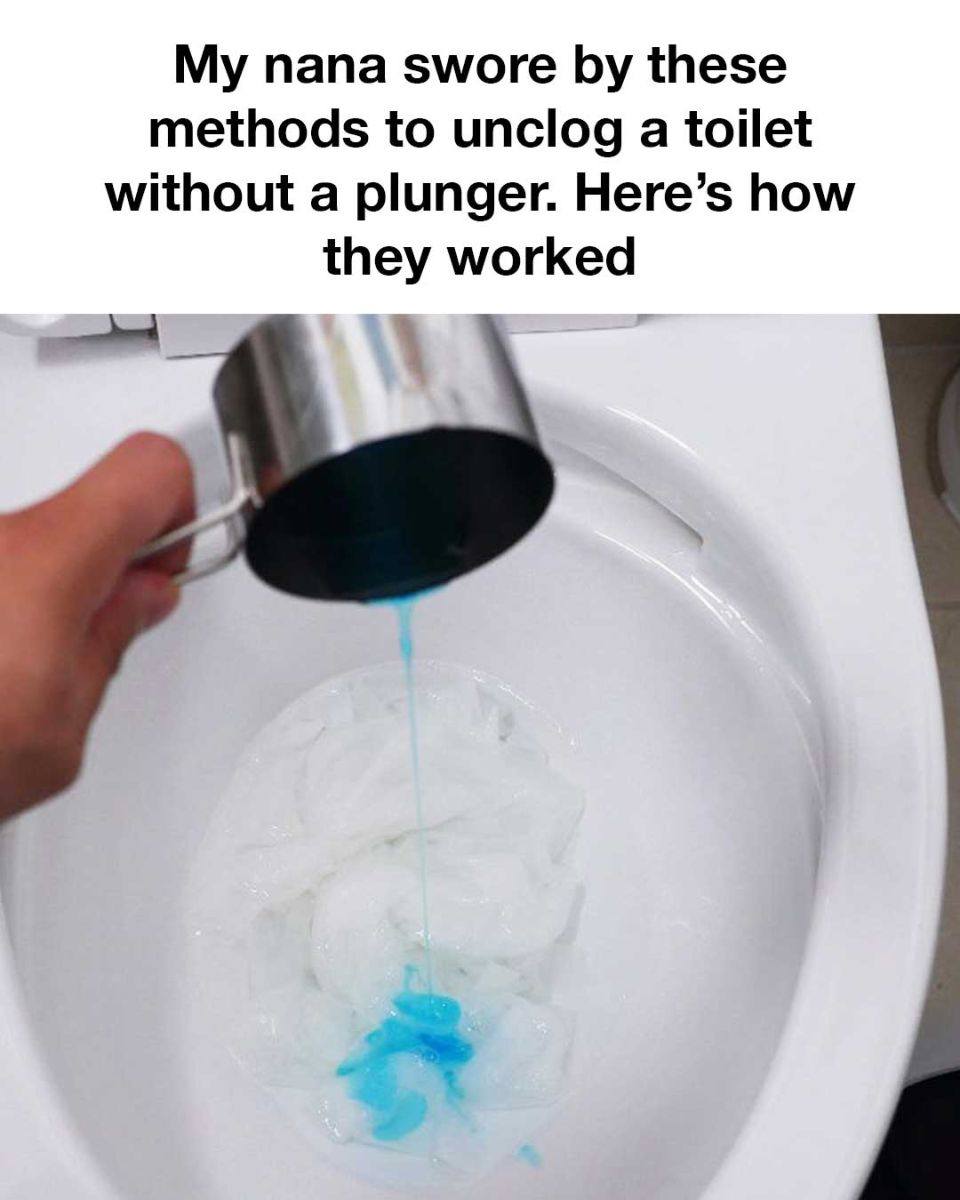ADVERTISEMENT
In the hustle and bustle of modern life, facing a clogged toilet without a plunger at hand can feel like a crisis. Yet, with a bit of wisdom handed down through generations and practical know-how, it’s possible to tackle this inconvenience with ease. My nana was a treasure trove of such practical tips, always ready with an effective home remedy for the trickiest of household woes. Here, I share her foolproof methods to unclog a toilet without relying on a plunger, reflecting the ingenuity and resourcefulness of yesteryears that are just as valuable today.
Common Methods and Why They Matter
In the realm of DIY home remedies, a few common techniques consistently stand out for their accessibility and effectiveness. These methods often rely on items readily available in most households, ensuring that anyone, at any moment, can address a clog without professional help or specialized tools. Understanding these methods not only prepares you for unexpected plumbing issues but also empowers you with practical skills that save time and money.
Method One: Hot Water and Dish Soap
One of the simplest, yet highly effective ways to unclog a toilet is using hot water and dish soap. Begin by heating a bucket of water—make sure it is hot but not boiling to avoid damaging the porcelain. While the water heats, squirt a generous amount of dish soap directly into the toilet bowl. The soap will begin to break down the clog, acting as a lubricant. Next, carefully pour the hot water into the bowl from about waist height to ensure force and effectiveness. Wait for a few minutes and if necessary, repeat the process. Often, the combination of the lubricating soap and the pressure of the hot water can dislodge even stubborn clogs.
Method Two: The Wire Hanger Technique
Another handy method involves using a simple wire hanger. Begin by unbending the hanger until it’s straight, except for a small hook at the end. Cover the hook with a rag to prevent scratching the toilet, securing it with duct tape if needed. Carefully insert the hanger into the drain and gently twist and push until you feel the obstruction. The wire hook works to either push the clog through or pull it out. Though it requires a bit more effort and precision, this method is particularly useful for clogs caused by non-disposable items.
Method Three: Baking Soda and Vinegar
For a solution rooted in chemistry, try using baking soda and vinegar—a dynamic duo known for its fizzing, cleaning power. Start by pouring one cup of baking soda into the toilet bowl, followed by two cups of vinegar. The mixture will fizz and bubble, working to break down the blockage. Let the solution sit for around thirty minutes. If the clog persists, follow with hot water to help push through the remaining obstruction. This natural and environmentally friendly method is excellent for dissolving organic materials causing the clog.
